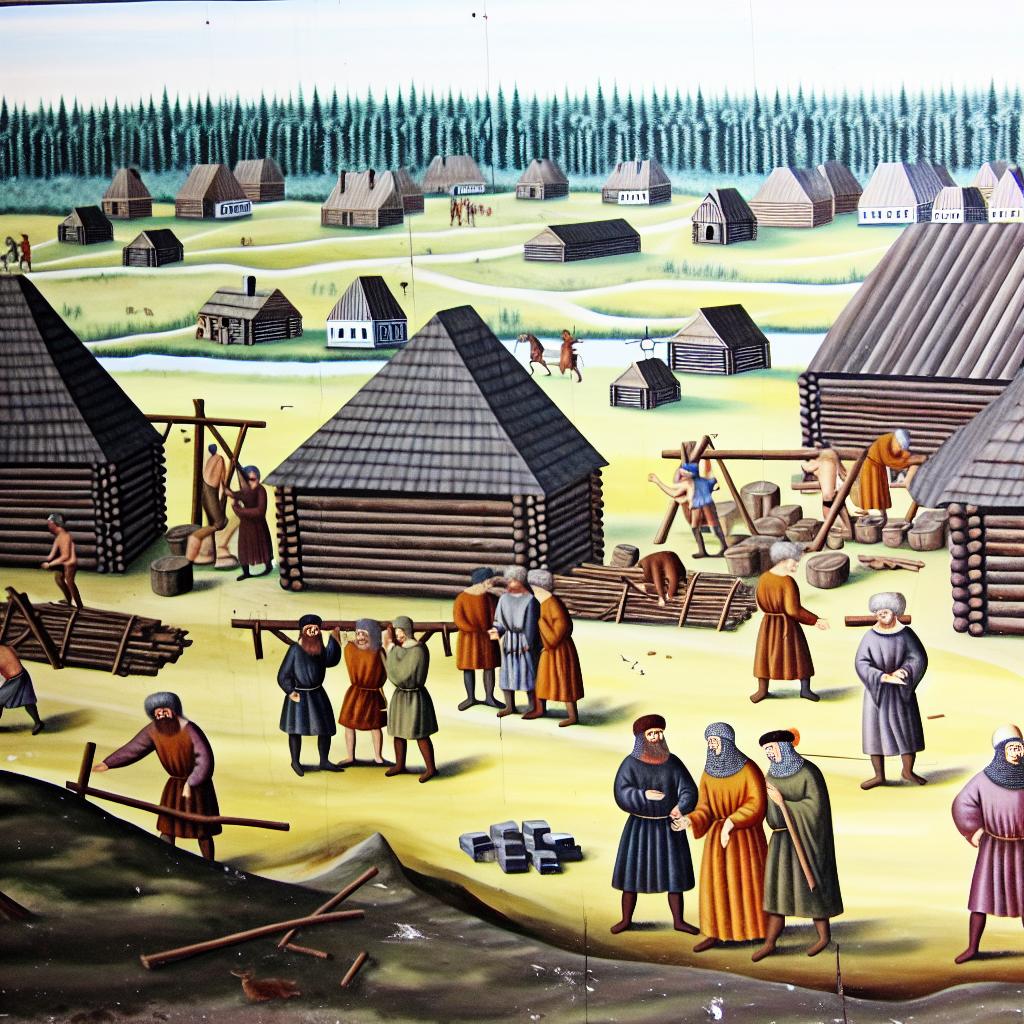The Historical Context of Moscow’s Founding
The city of Moscow, currently serving as both the capital and the most populous city of Russia, has its roots tracing back to the early 12th century. The commonly accepted founding year is 1147, a year historically significant as it marks the first known mention of Moscow. During this time, the region that would become Russia was known as the Rus’, comprised of various principalities rife with power struggles and territorial disputes.
The First Mention
Moscow’s initial mention can be found in a historical text authored by the chroniclers of Kievan Rus’. The Primary Chronicle, a vital document for understanding the early history of the Eastern Slavs, notes the year 1147 as significant due to the meeting between two prominent figures: Prince Yuri Dolgorukiy and his ally, Prince Svyatoslav Olgovich of Novgorod-Seversky. Yuri Dolgorukiy extended an invitation to his ally for a gathering at a place identified as “Moskva.” This name is now associated with both the city and the river that traverses it.
The Role of Yuri Dolgorukiy
Yuri Dolgorukiy, whose name translates to “Long Arm,” was an influential leader in the north-eastern expansion of the Kievan Rus’. He governed the Principality of Rostov-Suzdal, an area that eventually evolved into the Grand Duchy of Moscow. His reign involved efforts to consolidate power over disparate principalities. The meeting in Moscow was a strategically significant event, laying the foundation for Dolgorukiy’s future influence over the region.
The Geopolitical Significance
Moscow’s geographic location contributed substantially to its emergent prominence. Positioned at the intersection of critical trade routes and along the banks of the Moskva River, Moscow was naturally advantaged for both trade and defense. Moreover, the dense forests enveloping Moscow provided essential timber resources vital for construction and economic enterprises such as the fur trade, which held notable significance in Russian history.
Beyond 1147: Growth and Expansion
Following its initial recording in historical texts, Moscow transitioned from a modest trading post to an influential political and economic center. Over the ensuing centuries, Moscow’s stature grew substantially, eventually establishing its position as the cornerstone of a powerful state. By the late 13th century, Moscow had overtaken Kiev and other former regional powers, emerging as the political nexus of Russia.
While the year 1147 marks the first historical mention of Moscow, archaeological discoveries indicate that the area had been inhabited long before. Nevertheless, this year remains pivotal in Moscow’s historical narrative, symbolizing its initial recognition as a noteworthy settlement.
For further exploration of Moscow’s founding and history, consider consulting this article.

